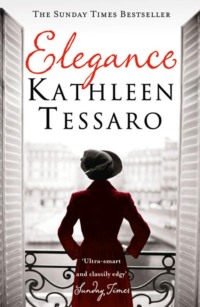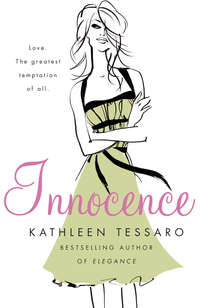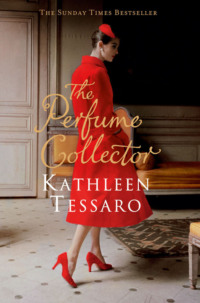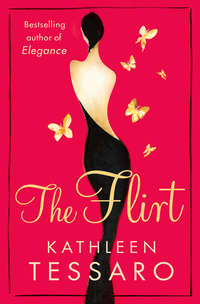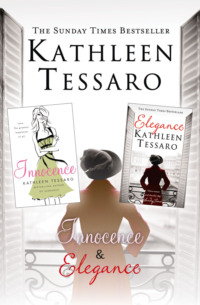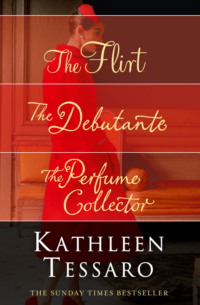
Полная версия
The Debutante
What an idiot!
But in truth, it was terrifying to feel anything again.
He was used to being on his own. It was safe. And he had a routine now. He sat at the same tables in the same cafes, ordered the same food. The waitress remembered how he took his coffee, the owner chatted about the book he was reading. (They knew how to treat a regular customer.) And there were things you could do, if not happily, at least peacefully, quietly – wander around galleries, listen to concerts, sit in the cinema on your own, in the dark. This was his life.
But now, for a moment at least, the seat next to him had been taken. He could still smell her perfume.
Don’t be seduced by the romance of the setting, he reminded himself. It’s about sex, pure and simple. It always was, always would be. It came dressed up as love, passion and romantic obsession, but sooner or later the gilding wore off and the coin underneath was always plain old sex.
Suddenly a memory seeped through his defences. He winced inwardly but couldn’t stop it. He was reaching across to touch his wife, when he saw her face, her large, dark eyes. They were full of sadness and, worse, resignation. He pushed it away but the feeling lingered.
Sex had been unsatisfactory. That was the truth. Reduced to a kind of shorthand, pornographic role play. The act itself wasn’t faked but the connection was, which was worse.
And he hadn’t wanted to discuss it or fix it. That was the awful thing. There’d been a part of him that had found it easier; that wanted to let go. It was as if he’d wished her away.
He was guilty of the crime of withdrawing. She’d seen it and let him go.
That haunted him too.
Jack turned away from the bucolic view.
It was a massive bedroom, practically the size of his entire flat. That’s what you got when you moved out of London – space, beauty, freedom.
He ought to move. He ought to start again somewhere new.
Sinking down on the bed, he yawned, rubbing his eyes.
He ought to do a lot of things.
It wasn’t a long-distance car, his Triumph. His back was stiff from driving. Lying flat, he closed his eyes.
Still, those hours driving across the countryside with Cate by his side were the happiest he’d had in a long time. The sun, the speed, the exuberance of Mozart contrasting with her calm, cool presence. It was exhilarating. He’d felt the hope of happiness; its possibility glimmering on the horizon, like a destination. He hadn’t realised how long he’d lived without the hope of anything, dragging himself mechanically through days, months, years. Now there was an aching in his chest, an animal desire to touch and be touched; to punch his way through the inertia of loss and grief.
He sat up, forced his fingers roughly through his hair.
It was insane to be so taken with this girl. He didn’t even know her.
He was just tired, lonely. Bored.
Still, there were laws of physics, of nature; mysterious, inconvenient gravitational pulls which couldn’t be denied.
At the opposite end of the house, a woman, a complete stranger, was drawing closer all the time.
17, Rue de MonceauParis
24 June 1926
My darling Bird,
You will be pleased to know that I have finally perfected the art of pressing myself up alluringly against a man while dancing and at the same time maintaining an expression of complete and utter indifference verging on contempt. Anne says it is essential and we have been practising it all week. Now all we need are some men.
How is that dashing Baronet of yours? I’m certain his shyness only masks an ardour that will soon make itself known to you (again, details of all carnal encounters kindly requested).
You are probably right that this business of coming out is more difficult and exhausting than I imagine and perhaps, as you say, I would benefit from taking a more serious view of the entire task. But as we both well know, seriousness is not my strong suit. I am, alas, not gifted with your natural good sense but rather destined to be somewhat ridiculous by comparison. I console myself that you have gone before me, made innumerable social contacts and charmed everyone so completely that when I arrive they will simply indulge me as an oddity before packing me off to a remote corner of the Empire with some ageing, palsy-ridden husband in tow.
And yes, I suppose my remarks about our mother are a little cruel. I should be more kind. Especially to Her Consort, the Benefactor of so much Good in our lives.
I know we are lucky, Irene. We certainly have a great deal more than we have ever had. And yet I miss Fa and, if truth be known, I hate Paris and all who sail in her. I am not like you, darling. I am not naturally good or calm or sensible. And I have the feeling of being a fake, everywhere I go–like an actress wandering around onstage in a play she hasn’t read, who can’t recall any of her lines. You seem to understand everything perfectly–why am I such a dolt?
Yours, as always,
The Idiot Child
She tried to nap, but still Cate was restless. She sat up on the bed. It was a vast room, as big as most flats in New York. An entire wall of windows looked out onto a vista of rolling hills, curving dramatically down to the sea.
Who had lived here? Who had chosen these primrose walls, this chintz curtain fabric with its design of blue wisteria and green ivy? This elegant walnut Empire bed? She ran her fingers lightly across the cool linen pillowcase. Its edges were monogrammed, ‘I A’, in pearly silken thread. Was it a wedding gift?
She opened the drawer of the bedside table; it shuddered slightly in protest. Two neatly folded cotton handkerchiefs, a tube of E45 eczema cream, half empty, a few stray buttons, a receipt from Peter Jones in Sloane Square for wool, dated 1989.
Cate closed it and picked up a well-worn volume from the top of a pile of books, The Poems of Thomas Moore, and opened it. On the flyleaf, in a bold flamboyant hand, was written ‘Benedict Blythe, Tir Non Og, Ireland’. It fell open to a page marked by a frayed crimson silk ribbon.
‘Sail On, Sail On’
Sail on, sail on, thou fearless bark –
Where’er blows the welcome wind,
It cannot lead to scenes more dark,
More sad than those we leave behind.
Each wave that passes seems to say,
‘Though death beneath our smile may be,
Less cold we are, less false than they,
Whose smiling wreck’d thy hopes and thee.’
Sail on, sail on – through endless space –
Through calm – through tempest – stop no more.
The stormiest sea’s a resting-place
To him who leaves such hearts on shore.
Or – if some desert land we meet,
Where never yet false-hearted men
Profaned a world, that else were sweet –
Then rest thee, bark, but not till then.’
It was a strange, desolate poem – an unsettling choice for an elderly woman, living out her final days, alone, by the sea.
Putting the book back with the others, Cate peered into the wardrobe. A clutch of naked wire hangers swung in the draught. Apart from a few extra blankets piled on the shelves, it was empty. The same was true of the chest of drawers. Faded flowered lining paper and a few yellowed sachets of potpourri were all that was left.
She turned to the dressing table. A silver brush and comb, a porcelain dish of wiry brown hairpins, a dusty box of Yardley’s lily of the valley talcum powder. And an old black-and-white photograph, presumably of Irene with her husband. She picked it up. They were both in their seventies, standing bolt upright, close but not touching. Irene was thin to the point of physical frailty, wearing a trim straw hat and a dark, neatly tailored suit. Her husband was proudly wearing the full dress uniform of his regiment, a silver-headed walking stick in his right hand; hat tucked under his arm. She was smiling, chin slightly raised, her eyes a distinctive clear blue. It was a bright day, yet the photo was flawed. There was a dark patch, a shadow falling across the right-hand side of the Colonel’s head. It must’ve been taken at a veterans’ event. Irene was holding a plaque of some kind, but the writing on it was too small for Cate to make out.
She wondered where the plaque was now; where all the accolades were that marked Irene Avondale’s lifetime of charitable service to the Empire.
It was a room of order, pleasant and curiously unrevealing, like a stage set. It had a numbing effect as if everything ambiguous had been smoothed over by a large, firm hand. Was Irene’s existence really so tidy and presentable? Or had someone removed any intimate traces of its owner?
Walking out and down the hallway, Cate opened doors, exploring the upper regions of the house. There were equally large bedroom suites both with sea and garden views, bathrooms, dressing rooms, some with floral themes, others with nautical designs…She moved quietly, aware that Jack was resting. She wanted to get a sense of the place on her own, like an animal finding its bearings. Turning in the opposite direction on the landing, she headed down the long hallway that separated the two wings of the house. Dappled sunlight danced in patterns across the faded oriental runners, worn from decades of use. There were two more guest rooms, a large family bathroom and then, at the very end of the hall, a closed door. She turned the knob. It was locked. Jack must have the key.
Cate bent down and examined the old lock. It wasn’t very sophisticated. In fact, it would be easy.
As she headed back to her room, digging out a nail file and credit card from her bag, she knew it would be simpler to wait for him – that it wasn’t really normal to pick the lock. But there was a swell of perversity in her; a childish stubbornness to do what she wanted, when she wanted. The idea of asking for help was inhibiting. And she felt a thrill of defiance as she walked quickly back to the locked door and, in one swift movement, jemmied the latch open.
It was a skill she’d learned from her father when she was eleven – part of an ongoing education that he liked to refer to as ‘life’s little talents’. They included such gems as how to roll a cigarette, the construction of the perfect bacon sandwich, and how to charm virtually anyone with a view to establishing a running tab without any credit at all. After his divorce from her mother, he’d lived in a small Peabody flat near the back of Bond Street Station. A promising guitarist in his youth, his career as a session musician floundered, an unwelcome by-product of his drinking. His once striking good looks faded, worn away by years of self-neglect. His sandy hair and grey-green eyes seemed to lose colour each time she saw him, and his swaggering self-confidence and physical ease were eroded by countless hangovers. She would visit him, and when he was sober, he’d take her for an all-day breakfast and then on to a half-price matinee at the Odeon Cinema in Marble Arch. On a good day, he would seem genuinely pleased to see her; chain-smoking, talking ten to the dozen about the things they would do, the jobs he had in the pipeline, the trips they would take after he next got paid. Maybe Brighton, Europe, perhaps even Africa on safari. Each plan was more magical and ambitious than the next; each promise heartfelt and genuine. When he smiled, he was the most handsome man in the room. ‘This job is different,’ he’d say. ‘This time it’s all coming together.’ And she would believe him.
Then around three o’clock, he would grow inexplicably agitated and irritable. No matter how hard she tried, no matter how many amusing stories she told, she couldn’t keep his attention. And before she knew it, they’d be sitting in a pub. One drink would turn into five, then seven. His face would go hard, his speech began to slur and his whole character would change. He’d lose his keys, misplace his wallet; start a fight with a stranger about some insult only he could hear. And then ‘life’s little talents’ would come in handy as she struggled to get him home without him falling over or getting punched or seducing some ridiculous old barmaid he’d been poking fun of only two hours earlier.
They never did go to Africa or even to Brighton. He spent his life making promises he never kept. Yet she loved him with that stubborn, painful, magical love that children have for their parents. A kind of willing suspension of disbelief that in spite of all of the years of evidence to the contrary, he would somehow, at the very final hour, manage to keep his word. When he died, she felt as if she’d spent her whole life on a train platform, checking her watch in anticipation, waiting for him to arrive. Only he’d been diverted; headed in a different direction entirely. And no one had bothered to tell her.
Perhaps if she’d been more interesting, prettier, smarter…
Now she seemed to have inherited his moral flexibility; his dark, moody restlessness – the same ever-widening discrepancy between her words and actions. Nowadays she too found herself making promises she couldn’t keep, even to herself.
The latch clicked.
The locked door swung open.
Cate blinked, blinded by the brightness.
It was a large square room with high ceilings and a wall of French windows leading to a balcony overlooking the rose garden. All around the room, the most delicate plasterwork and cornicing shone, covered in gilt; bright gold garlands twining against creamy white walls. The effect was dazzling.
Cate stepped out of the cool darkness of the hallway. The room was stifling, airless. She opened the French windows, their hinges creaking from lack of use. Wind rushed in and the vacuum of heat and stale air released like a sigh. It was as if the room were holding its breath. But for how long?
Above a marble fireplace hung an elaborate overmantel. The Aubusson carpet, sun-bleached and pale, was patterned with circlets of flowers and cherries. More garlands wove around the ceiling rose, filling the room with a soft burnished glow. It was easily the loveliest room in the house; beautifully porportioned, ornate, like a miniature ballroom.
So why was it locked?
There was a single bed against one wall and a dresser. A thick layer of dust covered everything. Cate opened a drawer and dust ballooned into the air, making her cough. There was nothing inside.
Bookshelves lined the wall opposite. She examined the faded spines. The Wind in the Willows, The Water-Babies, The Faithless Parrot, The Children of the New Forest as well as Grimm’s Fairy Tales and works by Hans Christian Andersen and a large collection of Lewis Carroll. Pulling out The Wind in the Willows, she opened it. Its spine creaked stiffly. Apart from damage from dust and age, however, it was pristine.
Then, kneeling down, she noticed something. There was an anthology of Beatrix Potter books, small, taking up only half the width of the shelf. Behind them, an old shoebox was wedged into place, filling the gap, making all the rows look even. Cate carefully dislodged it. It was printed in soft brown ink to look as if it were made of alligator skin and tied together with a salmon pink ribbon. It was heavy.
On the side of the box there was a label. ‘F. Pinet, Ladies’ Footwear’. In pencil beneath, written in a florid, old-fashioned hand, there was the shoe size, 4.
Cate untied the frayed silk ribbon and lifted the lid. Wrapped between layers of crumpled newspaper was a pair of delicate silver dancing shoes. They were made from rows and rows of fine braided mesh, finished off with rhinestone clasps. The handiwork was remarkable; intricate patterns of silver thread glittered across the back heel and along the toe. Judging from the style, the roundness of toe, they must have been from the late 1920s or early 1930s. And they looked expensive. Did they belong to Lady Avondale?
Cate turned them over. They’d been worn only a few times; the leather was barely scuffed. She traced her finger along the smooth leather arch. They were so small! Someone, presumably the old lady, used the box to even out the rows of books. But why? Why would anyone bother with such a detail in a room that was locked, virtually empty of furniture?
Picking up the box, she felt something slide to one end. It wasn’t empty. She lifted out the crumpled newspaper.
There, hidden underneath, was a collection of objects.
One by one, she took them out.
There was a worn, pale blue velvet jewellery box. Cate flicked it open.
‘My God!’
It was a tiny bracelet, fashioned from pearls, diamonds and emeralds. ‘Tiffany & Co, 221 Regent Street, W. London’ was printed on the white satin cover of the lid. Cate undid the clasp and held it up to the light. The pattern was a delicate combination of pearl flowers with emerald centres, interspersed with slender pearl ovals augmented by rows of diamonds. The diamonds were dulled by dust and age but the emeralds glittered in the sunlight. She tried it round her own wrist. It only just fitted. Incredibly finely made, it was probably extremely valuable.
Closing the clasp, she laid it neatly back in its case.
Next was a slim silver box with an elaborately scripted ‘B’ in the centre decorated with diamonds. Here was a battered green badge with a picture of a candle on it. It bore the inscription ‘The prize is a fair one and the hope great’, and in the centre were the letters ‘SSG’. A small tarnished brass key, too tiny for any door, had rolled into one corner. It fitted into the hollow of her palm like something from Alice in Wonderland. Perhaps it belonged to a desk or a locked drawer? And at the very bottom of the box, there was a photograph of a handsome dark-haired young man in a sailor’s uniform. He had even features and black, lively eyes. It was a formal photograph, taken in a photographer’s studio. He was posed against a vague classical backdrop of a Greek column, one arm resting casually against a pedestal draped in heavy cloth, the other placed confidently on his hip. ‘HMS VIVID’ was embroidered on his hat. He couldn’t be older than twenty. Underneath, on the black border, the photographer’s name, ‘J. Grey, 33 Union Street, Stonehouse, Plymouth’, was written.
Cate felt a sense of building excitement. This was no random selection of objects but something personal. Each bit – the shoes, the bracelet, the photograph – were related somehow. Someone had gathered them, hidden them in the shoebox, and concealed them behind the books. But why?
A bee flew in through the open French windows. It buzzed wildly, looking for a way out.
She stared at the photograph of the handsome young man with the laughing, defiant gaze.
It was a chronicle, an archive – of something worth hiding – marked by diamonds from Tiffany’s, silver dancing shoes, beautiful young men…
Her memory tripped. Suddenly she was back in time, walking down the long corridor, into the ballroom of the St Regis Hotel, all gilt mirrors and low lighting. People were turning, people she didn’t know, smiling at her, staring. The soft green silk of her dress swirled around her legs. A jazz trio played ‘Please Don’t Talk About Me When I’m Gone’.
Something marked by diamonds, dancing shoes, handsome men…
He was there, in front of her. His hair smooth and glossy, sleek against his strong features; his eyes dark, almost black. He wasn’t handsome but rather compelling; dominating.
‘Some people are afraid of success. Afraid of really being alive.’ His tone was challenging, his expression amused. ‘Are you afraid?’
‘Nothing frightens me,’ she had answered coolly, turning away.
Cate closed her eyes.
In truth she had been afraid; afraid of everything, everyone. But she had lied. She had walked away and he had followed, through the crowds of men and women in evening dress, waltzing and turning, their reflections spinning in the mirrors lining the walls.
The bee veered out of the open window, into the vast freedom of the garden.
Cate watched it disappear.
If only she’d known then that soon he’d be the one walking away and she’d be the one following, stumbling behind.
There was a noise.
Cate tensed as she listened to Jack cross the landing at the end of the hallway.
He was looking for her.
Gathering the things together, she put them back in the box, hastily retying the lid with the ribbon.
It ought to go back where she found it. Or she should show it to Jack.
That was the right thing to do.
‘Cate? Cate?’ He was heading down the stairs. ‘Cate!’ Instead she tucked the box under her arm, racing soundlessly along the corridor, heart pounding, back to her room.
They began their work at the front of the house, with the entrance hall, working fastidiously at what seemed like a painfully slow speed. Little stickers went on each item with a number. Each number corresponded to a description dictated to Cate by Jack and then they took a photograph, sometimes several from different angles. Every figurine, every painting, every detail of the lives that were once lived here were recorded and priced for quick sale.
Each piece had an estimated value. Cate filled in the figures next to the descriptions in uncharacteristically careful, neat handwriting, the total mounting by the minute. It was mind-numbing. How sad that all these objects, acquired and beloved through generations, were to be reduced to nothing but a few lines in a catalogue. Endsleigh had been a home once – a refuge against life and the world. Some of these things had been favourites; treasured. Now she and Jack were the last people ever to stay there in its incarnation as a private home. A couple of strangers; strangers to the house and its history, strangers even to each other. Soon bulldozers would be knocking down Mrs Williams’s low-ceilinged cottage to make way for a luxury spa; the front hallway transformed into a reception area and bar. Already she could imagine the delight of tourists as they arrived for their country-house weekend.
Jack was good at his job, clever and concise, reeling off complicated accounts of styles and conditions of objects without pausing for breath. And Cate was grateful for the lack of demanding interaction between them. He dictated; she recorded. She was invisible and it soothed her to forget for a while who she was and how she’d ended up here. By the time they stopped at seven, her fingers ached from the effort of trying to write clearly and yet at speed.
‘Shall we leave it here for tonight?’ he suggested.
She nodded gratefully, filing away the forms in a folder.
‘I think I can smell something cooking,’ he added, yawning and stretching his arms above his head.
They wandered into the kitchen. Mrs Williams had been hard at work – the shepherd’s pie was browning nicely in the oven and two place settings were laid out on the long pine table along with a green salad, a bowl of fruit and some cheese.
‘Thank God for that!’ He rubbed his hands together. ‘I’m famished!’
‘And yet where is the invisible Mrs Williams?’ Cate wondered, leaning up against the worktop. ‘This is like something out of a fairy tale; Beauty and the Beast.’
‘Don’t we all wish we had staff like that?’
‘Hmm.’
‘Oh, and here’s just the thing!’ Jack picked up a bottle of red wine airing on the worktop next to two glasses. ‘Can I pour you one?’
‘No, thank you.’
‘Really? Are you sure?’
‘I’m fine, thanks.’
Then he remembered his conversation with Rachel, some mention of her father being an alcoholic. Of course, he wasn’t meant to know anything about her. He poured out a glass. ‘I hope you don’t mind.’


